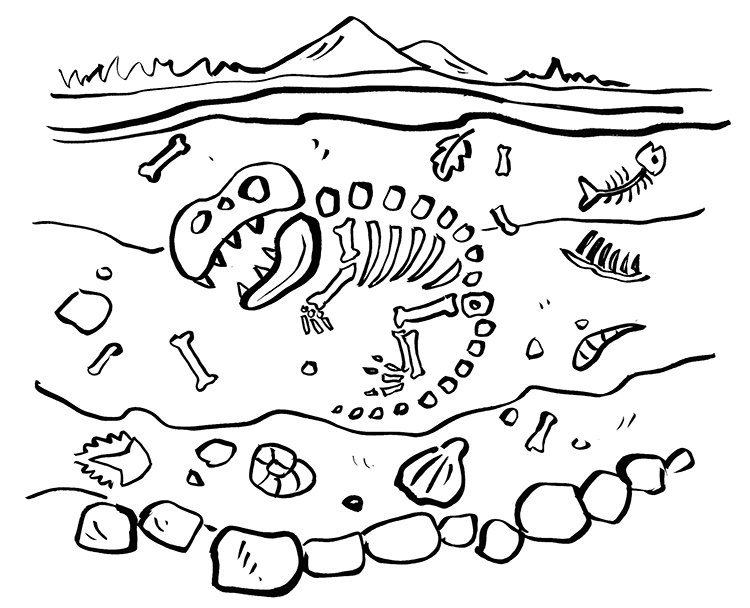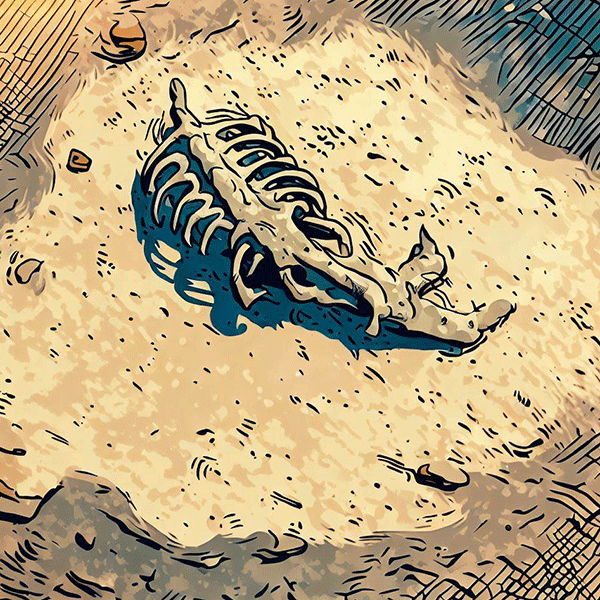A Peek into Earth’s Past
Ever wished you could travel back in time to when dinosaurs roamed the Earth or when the first plants popped out of the ground? Well, you kind of can! All you need is a fossil. But what are fossils? They’re not just old rocks. They’re like time machines that allow us to peek into Earth’s past!
What Are Fossils?
Fossils are the remains or signs of plants and animals that lived a long, long time ago. The word “fossil” comes from a Latin word that means “dug up”. That’s because most fossils are found buried in the ground!
But remember, not every old leaf or bone can become a fossil. It’s like winning a special nature lottery. Usually, the plant or animal needs to be covered quickly by things like mud or sand after it dies. This helps protect it from being eaten or rotting away.
Different Types of Fossils
Fossils can come in all sorts of shapes and sizes. Here are a few kinds you might find:
- Body Fossils: These are the actual parts of the organism, like bones, teeth, or shells. Sometimes, even soft parts like skin or feathers can turn into fossils if conditions are just right!
- Trace Fossils: These aren’t parts of the organism itself, but signs of what it did. Think footprints, burrows, or even fossilized poop (which scientists call coprolites)!
- Plant Fossils: These can be as small as pollen grains or as big as tree trunks. Some of the prettiest fossils are leaves, which often show fine details of their veins and edges.

Fossils: Nature’s Time Capsules
Fossils are like nature’s time capsules. They give us amazing clues about what life was like millions or even billions of years ago. By studying fossils, scientists called paleontologists can answer big questions. What did ancient animals look like? How did they behave? How have they changed over time?
For example, dinosaur fossils have shown that some dinosaurs took care of their babies and others may have had feathers. Fossils of creatures like ammonites (imagine a creature with a shell, similar to a nautilus) have helped figure out how old certain rock layers are.
How to Be a Fossil Finder
You don’t need to be a professional paleontologist to find fossils. Many important discoveries have been made by people just like you! All you need is sharp eyes, a little patience, and respect for the rules (always ask before you start digging).
Remember, fossils aren’t just cool treasures—they’re important for science. If you find a fossil, think about taking it to a museum or university. Your discovery could help us learn more about our planet’s past!
Wrapping Up
Fossils give us an exciting look into Earth’s history, telling stories of plants and animals that lived millions of years ago. They remind us that our planet has been home to so many different forms of life, and we’re just the latest chapter in its long story. So next time you see a fossil, remember—you’re holding a real piece of Earth’s history!
